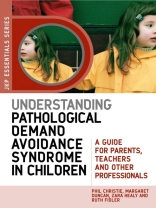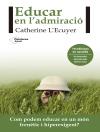This straightforward guide offers a complete overview of Pathological Demand Avoidance Syndrome (PDA) and gives practical advice for overcoming the difficulties it poses in a wide range of contexts from diagnosis through to adulthood.
Starting with an exploration into the background of PDA that answers many of the immediate questions triggered when a child is first diagnosed, the book goes on to look at the impact of the condition on different areas of the child’s life and what can be done to help. The authors present useful information on early intervention options and workable strategies for managing PDA positively on a day-to-day basis. They also examine ways to minimize common difficulties that may be encountered at home and school, making life easier for the child, family and peers. The final chapters tackle new problems that can arise when the teenage years hit and how to assist a successful transition from adolescence to adulthood. Illustrative case examples are included throughout, and the book concludes with a list of valuable resources for further information and advice.
Full of helpful guidance and support, this user-friendly introductory handbook is essential reading for anyone caring for, or working with, children with PDA.
Table of Content
Acknowledgements. Introduction. 1. What is PDA? 2. Positive Everyday Strategies. 3. Living with PDA. 4. Providing the Best Education for a Child with PDA. 5. Developing Emotional Well-being and Self-awareness in Children with PDA. 6. Summing Up and Questions for the Future. Appendix 1: Useful Websites and Links. Appendix 2: Book List. References. Index.
About the author
Phil Christie is Director of Sutherland House Children’s Services, run by autism charity NORSACA (www.norsaca.org.uk), and leads a team of Consultant Child Psychologists at the Elizabeth Newson Centre. The centre carries out training and research activities and has particular expertise in PDA. He is also Associate Editor of ‘Good Autism Practice’, and became Chair of the Advisory Council of the Autism Education Trust in 2009.












